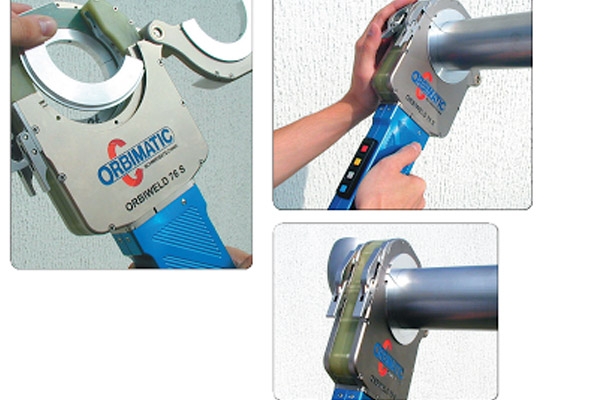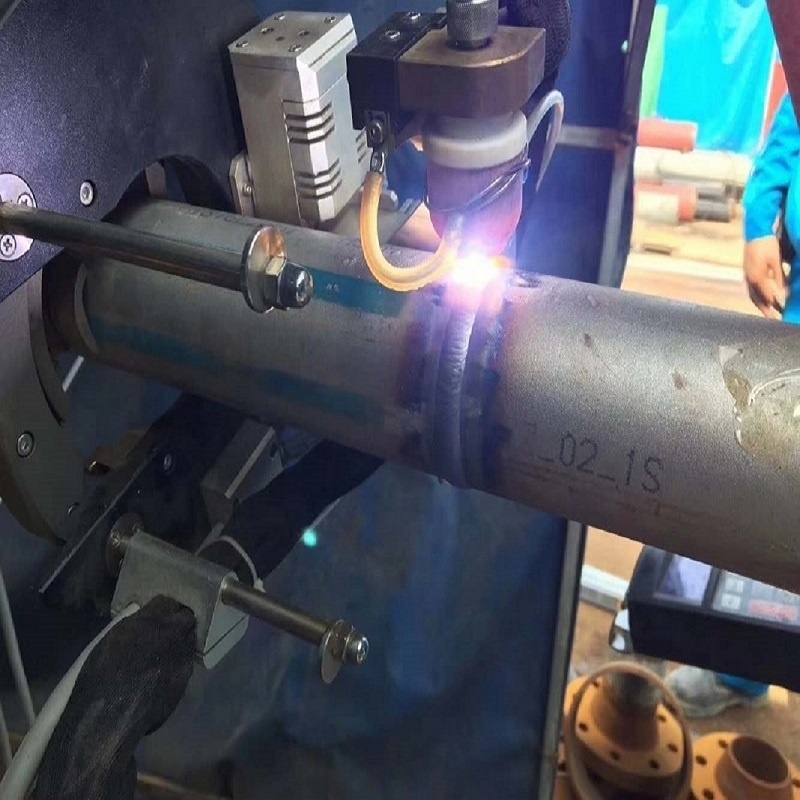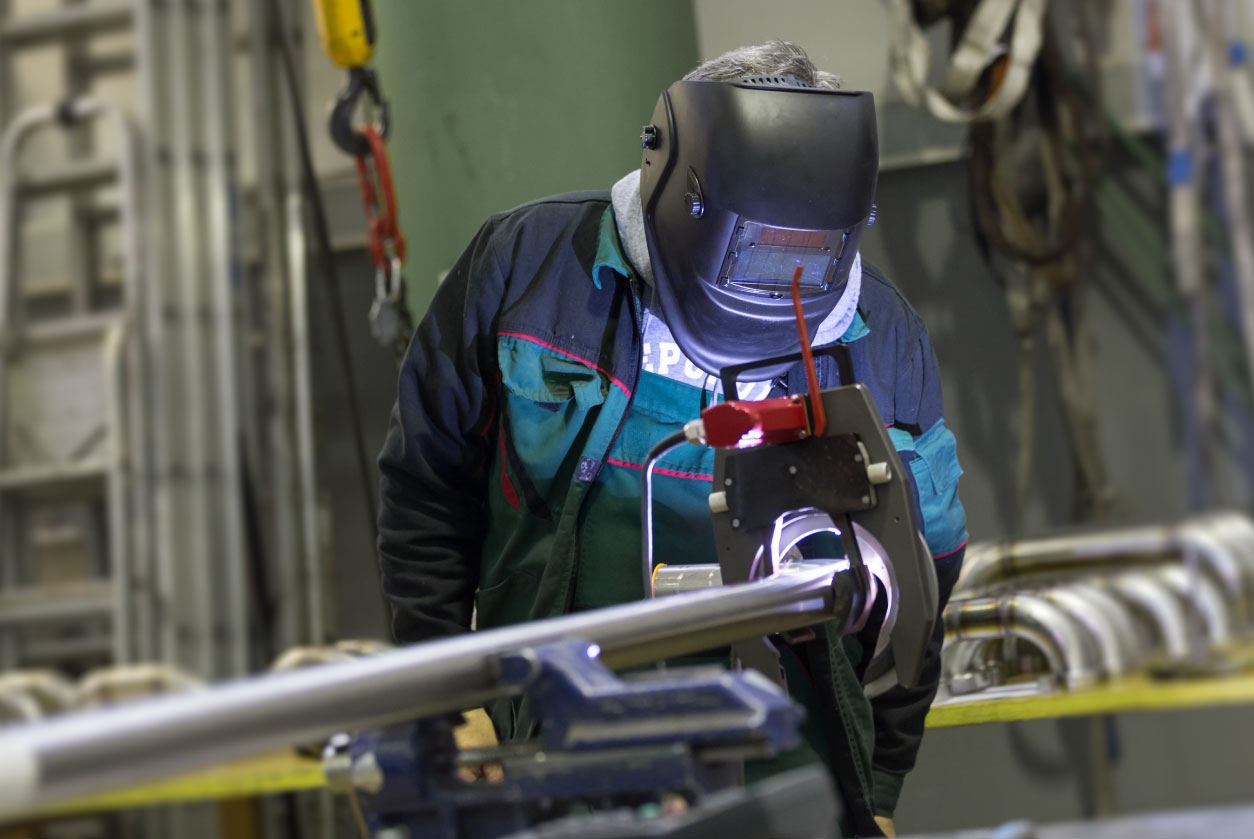Orbital welding machine - advanced welding technology
currently, many different industries are mostly using orbital welding machine to help achieve maximum sealing, high performance as well as absolute hygiene. this technology is applied in many different industries, from the pharmaceutical, biological, beverage,... to power plants to process chemicals.
so what are the advantages of this welding technology? let swisstechschreiner.com find out more details in the following article
what are the advantages of orbital welding machine?
orbital welding machine automatically establishes an arc between a consumable tungsten electrode (located at the welding tip) and the base material to be welded, creating a welding puddle. the electrode puddle and weld are both surrounded by a masking gas through the welding tips to protect the electrode, molten weld pool, and strengthen the metal weld from gas ingress. the heat generated by the arc melts the base materials, and the electrode moves along the junction and gradually melts and bonds to the adjacent surface material.
small, portable welding power sources with inverters and advanced control systems make the gtaw orbital or orbital welding system easy to use for a wide range of applications. the introduction of new technology further improves operability in weld systems with reliability and uniformity.
design with an open platform
the orbital welder's welding power source has integrated many welder's skills into the welding system, allowing for efficient automation, programming, data logging.. a design with an open platform.
allows interoperability with standard devices and the ability to expand as technology evolves and needs change.
automation
welding operations that have historically had to be done manually, such as swing speed, arc distance, gas flow and flow control, are controlled through electronic and mechanical devices. gas. this greatly reduces the welding process variables that can lead to errors or defects and allows welders to focus on monitoring the process and completing the welds.
program
every orbital welder, regardless of application, requires programming that controls the system's output characteristics. the system can simplify programming by providing step-by-step programming parameters for different pipe diameters, thicknesses, welding gases used, and welding materials.
orbital welding – automated orbital welding is a tightly controlled process that ensures repeated uniform welds.
instead of manually building welding programs using charts or tables, past welding parameter data, or memory, the operator can program them by selecting the appropriate data from the list. choose from the drop-down menu. the system then generates initial programs for the operations, reducing the chance for human errors and reducing the machine's setup time. this feature is also useful for inexperienced operation with the type of welding consumable.
newer orbital welding systems have a built-in usb port that allows the operator to plug in a mouse or keyboard for simple data entry. operators can also download welding programs via a usb flash drive or the operating system to update the software to add welding features or functions.
uniformity, repeatability and efficiency of orbital welding machine
with an orbital welder, the electrode rotates in an orbit around the weld on a motor
the motor and electrode are placed at the welding end, which rotates around the tube. the process is tightly controlled to help ensure that high quality welds can be produced on a uniform and repeatable basis.
the variables are maintained at the preset level. the system automatically starts and completes welds, step-by-step from one setting variable to the next at specific locations of the weld or at predetermined times throughout the process.
gas control
orbital welding source - new generation orbital welding is designed with automatic masking control to the welding tip. this eliminates operator inefficiencies or the possibility of incorrect settings that can adversely affect weld quality. the controller adjusts the air flow automatically according to the program selected for a particular weld. the integrated flow control also prevents the operator from starting welding without gas, a fault that could lead to damage to the tip or work piece.
blast purge - blast purge. advances in gas control continue to allow operators to improve work efficiency when welding in locations where the power supply is far from the tip. a sufficient amount of gas must be present in the welding position before the weld is started. the propellant gas quickly fills the air passage, then automatically returns to normal flow, allowing the operator to start a weld sooner.
maintaining proper control of the masking gas at the welding end is important to protect the weld from airborne contamination.
mobility and accessibility
orbital welding systems – small, lightweight orbital welding systems designed for high mobility. the welding source can be moved easily from one place to another. remote control and detachable welding tips and attachments allow for pre-preparation of welds and allow welding in hard-to-reach spaces. only a small gap in the weld area is required to allow the tip to rotate a full 360-degree orbit around the tube.
as the world becomes narrower and narrower, a single welding system can be used for all cultures and geographies. the welding system with multiple language capabilities integrated into the interface allows the operator to switch between languages at the push of a button. some welding systems also have an input voltage that automatically adjusts depending on the country.
new advancements are helping the orbital welders produce welds of consistent quality and quality - making cost-effectiveness possible for plant managers and operators.
new innovations are helping the orbital welding machine produce welds of consistent quality and quality – making cost-effectiveness possible for plant managers and operators.



